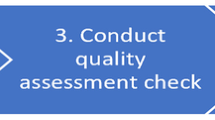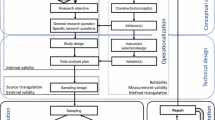Abstract
In loosely structured environments such as rural areas, the objectives and methods to encourage knowledge creation and learning are still much debated, leading to a wide diversity of learning systems. Using action-learning theory as a standpoint from which to understand this diversity, a review of the literature was conducted and five specific approaches were identified: (1) extension, (2) community learning, (3) organizational capacity building, (4) empowerment, and (5) social learning. Extension systems and organizational capacity building represent an operational perspective mainly focused on acquiring knowledge and changing practices, through single-loop learning processes. Community learning and empowerment were developed as alternative systems, focusing on changes in values, which can be achieved through double-loop learning. Social learning provides insight into the capacity to influence a wider environment through triple-loop learning, although methods are still rarely formalized. The action-learning perspective enables an understanding of the complementarities between approaches, and thus provides insight into how to devise better learning systems.

Similar content being viewed by others
References
Allaire G (2006) Les compétences collectives dans le développement (une approche institutionnaliste). In Proceedings of Territoires et enjeux du développement régional (INRA, Ed), Lyon, France.
Anderson J and Feder G (2003) Rural extension services. Policy Research Working Paper, The World Bank, Development Research Group, Washington, DC.
Argyris C (1999) On Organizational Learning. Blackwell Publishing, Oxford.
Argyris C and Schön D (1996) Organizational Learning II: Theory, Method and Practice. Addison Wesley, Reading, MA.
Aspen Institute (1996) Measuring Community Capacity Building, Tools for Practice. Aspen Institute – Rural Economic Policy Program, Washington, DC.
Bacqué M-H, Rey H and Sintomer Y (2005) La démocratie participative, un nouveau paradigme de l’action publique? In Gestion de proximité et démocratie participative (BACQU M-H, REY H and SINTOMER Y, Eds), pp 9–46, La Découverte, Paris.
Baskerville R and Dulipovici A (2006) The theoretical foundations of knowledge management. Knowledge Management Research and Practice 4 (2), 83–105.
Benor D and Baxter M (1984) Training and Visit Extension. World Bank, FAO, Washington, DC.
Black A (2000) Extension theory and practice: a review. Australian Journal of Experimental Agriculture 40 (4), 493–502.
Boucher J, Favreau L, Guindon G and Hurtubise L (2000) Développement local, organisation communautaire et économie sociale. Une recension des écrits. (1990–2000), Université du Québec à Hull.
Chambers R (1994) Participatory rural appraisal (PRA): analysis of challenges, potentials and paradigms. World Development 22 (10), 1437–1454.
Cloke P (1985) Whither rural studies? Journal of Rural Studies 1 (1), 1–9.
Dasgupta A and Beard V (2007) Community driven development, collective action and elite capture. Development and Change 38 (2), 229–249.
Dasgupta A and Serageldin I (2000) Social Capital: A Multifaceted Perspective. The World Bank, Washington, DC.
Degnbol-Martinussen J (2002) Development goals, governance and capacity-building: aid as a catalyst. Development and Change 33 (2), 269–279.
Ellis F and Biggs S (2001) Issues in rural development: evolving themes in rural development 1950s–2000s. Development Policy Review 19 (4), 437–448.
European Commission (1996) Towards a Cognitive Society. White Book, European Commission, Brussels.
Fabricius C, Folke C, Cundill G and Schultz L (2007) Powerless spectators, coping actors, and adaptive co-managers: a synthesis of the role of communities in ecosystem management. Ecology and Society 12 (1), article no. 29.
Falk I and Harrison L (1998) Community learning and social capital: ‘just having a little chat’. Journal of Vocational Education & Training 50 (4), 609–627.
Foldy EG and Creed D (1999) Action learning, fragmentation, and the integration of single-, double-, and triple-loop change. The Journal of Applied Behavioral Science 35 (2), 207–227.
Foray D (2004) The Economics of Knowledge, MIT press, Cambridge, MA.
Freire P (1982) Extension or communication? In Education for Critical Consciousness (FREIRE P, Ed), pp 93–164, Continuum, New York.
Gasselin P and Lavigne Delville P (2010) Les principes fondamentaux d’une démarche de recherche-action en partenariat. In Innover avec les acteurs du monde rural : La recherche-action en partenariat (FAURE G, GASSELIN P, TRIOMPHE B, TEMPLE L and HOCDÉ H, Eds), pp 41–47, QUAE, Versailles.
Helling L, Serrano R and Warren D (2005) Linking Community Empowerment, Decentralized Governance, and Public Service Provision through a Local Development Framework. World Bank, Washington.
Helmsing B (2001) Externalities, learning and governance: new perspectives on local economic development. Development and Change 32 (2), 277–308.
Herbert-Cheshire L and Higgins V (2003) From risky to responsible: expert knowledge and the governing of community-led rural development. Journal of Rural Studies 20 (3), 289–302.
Hovland I (2003) Knowledge management and organisational learning: an international development perspective. An annotated Bibliography Working paper 224, Overseas Development Institute, London.
King K (2006) Knowledge for development or knowledge for developers? A historical perspective. In La société des savoirs: trompe-l’œil ou perspectives? (CARTON M and MEYER J-B, Eds), pp 9–26, L’Harmattan, Paris.
King WR, Chung TR and Haney MH (2008) Knowledge management and organizational learning. Omega-International Journal of Management Science 36 (2), 167–172.
Kroma MA (2006) Organic farmer networks: facilitating learning and innovation for sustainable agriculture. Journal of Sustainable Agriculture 28 (4), 5–28.
Leeuwis C (2000) Reconceptualizing participation for sustainable rural development: towards a negotiation approach. Development and Change 31 (5), 931–959.
Leeuwis C and van den Ban A (2004) Communication for Rural Innovation: Rethinking Agricultural Extension. Blackwell, Oxford.
Lincoln ND, Travers C, Ackers P and Wilkinson A (2002) The meaning of empowerment: the interdisciplinary etymology of a new management concept. International Journal of Management Reviews 4 (3), 271–290.
Lundvall B-Å and Johnson B (1994) The learning economy. Journal of Industry Studies 1 (2), 23–42.
Meinzen-Dick R, DiGregorio M and McCarthy N (2004) Methods for studying collective action in rural development. Agricultural Systems 82 (3), 197–214.
Mercoiret M-R (2006) Les organisations paysannes ne défendent pas les intérêts des agriculteurs. In L’Afrique des idées reçues (GEORGES C, Ed), pp 308–314, Belin, Paris.
Mercoiret M-R and Berthomé J (2001) L’organisation des producteurs. In L’appui aux producteurs ruraux – Guide à l’usage des agents de développement et des responsables de groupements (MERCOIRET M-R, Ed), pp 202–230, Karthala, Paris.
Moore A and Brooks R (2000) Learning communities and community development: describing the process. International Journal of Adult and Vocational Learning 1, 1–15.
Morin E (1992) From the concept of system to the paradigm of complexity. Journal of Social and Evolutionary Systems 15 (4), 371–385.
Murray P (2000) Evaluating participatory extension programs: challenges and problems. Australian Journal of Experimental Agriculture 40 (4), 519–526.
NeuchÂtel Group (1999) Common framework on agricultural extension. [WWW document] http://www.neuchatelinitiative.net/english/index.htm.
Nielsen R (1993) Woolman's ‘I am We’ triple-loop action-learning: origin and application in organization ethics. The Journal of Applied Behavioral Science 29 (1), 117–138.
Nonaka I and Takeuchi H (1995) The Knowledge-Creating Company: How Japanese Companies Create the Dynamics of Innovation. Oxford University Press, Oxford.
Nussbaum M (2000) Women and Human Development: The Capabilities Approach. Cambridge University Press, Cambridge.
OECD (2000) Knowledge Management in the Learning Society (CENTRE POUR LA RECHER Ed), OECD Publishing, Paris.
Petit M (2000) Cow up a tree: A critical assessment. In Cow up a Tree: Knowing and Learning for Change in Agriculture (LEARN GROUP, Ed), pp 477–488, INRA, Paris.
Petrides LA and Guiney SZ (2002) Knowledge management for school leaders: an ecological framework for thinking schools. Teachers Collegue Report 104 (8), 1702–1717.
Richardson D (2005) How can agricultural extension best harness ICT's to improve rural livelihoods in developing countries? In ICT in Agriculture: Perspectives of Technological Innovation (GELB E and OFFERS A, Eds), European Federation for Information Technologies in Agriculture, Food and the Environment, Paris.
Rivera WM (2000) The changing nature of agricultural information and the conflictive global developments shaping extension. Journal of Agricultural Education and Extension 7 (1), 31–41.
Rivera WM and Qamar K (2003) Agricultural Extension, Rural Development and the Food Security Challenge. FAO, Rome.
Robertson SL (2005) Re-imagining and rescripting the future of education: global knowledge economy discourses and the challenge to education systems. Comparative Education 41 (2), 151–170.
Röling N and de Jong F (1998) Learning: shifting paradigms in education and extension studies. The Journal of Agricultural Education and Extension 5 (3), 143–161.
Röling N and Jiggins J (1998) The ecological knowledge system. In Facilitating Sustainable Agriculture (RÖLING N and WAGEMAKERS A, Eds), pp 283–307, Cambridge University Press, Cambridge.
Romanow P and Bruce D (2006) Communication and capacity building: exploring clues from the literature for rural community development. Journal of Rural and Community Development 1 (2), 131–154.
Romme G and van Witteloostuijn A (1999) Circular organizing and triple loop learning. Journal of Organizational Change Management 12 (5), 439–454.
Scott M (2004) Building institutional capacity in rural Northern Ireland: the role of partnership governance in the LEADER II programme. Journal of Rural Studies 20 (1), 49–59.
Sen A (1989) Development as capability expansion. Journal of Development Planning 19 (1), 41–58.
Sligo FX and Massey C (2007) Risk, trust and knowledge networks in farmers’ learning. Journal of Rural Studies 23 (2), 170–182.
Storey D (1999) Issues of integration, participation and empowerment in rural development: the case of LEADER in the Republic of Ireland. Journal of Rural Studies 15 (3), 307–315.
Turcotte M-F, Antonova S and Clegg S (2007) Managing Learning Societally Les cahiers de la CRSDD, Collection Recherche, Vol. 14, Université du Québec, Montréal.
UNESCO (2005) Towards knowledge societies: UNESCO world report. UNESCO, Paris.
Van de Fliert E, Dung NT and Henriksen O (2007) From collectives to collective decision-making and action: farmer field schools. Journal of Agricultural Education and Extension 13 (3), 245–256.
Van der Ploeg JD, Renting H, Brunori G, Knickel K, Mannion J, Marsden T, de Roest K, Sevill-Guzman E and Ventura F (2000) Rural development: from practices and policies towards theory. Sociologia Ruralis 40 (4), 391–408.
Watts J, Mackay D, Horton D, Hall A, Douthwaite B, Chambers R and Acosta A (2003) Institutional Learning and Change: An Introduction. International Service for National Agricultural Research (ISNAR), Hague.
World Bank (1999) Knowledge for Development, World Development Report. World Bank, Washington.
Acknowledgements
The authors would like to thank the two anonymous reviewers for their very constructive comments, which greatly helped us improve our message.
Author information
Authors and Affiliations
Corresponding author
Appendix
Rights and permissions
About this article
Cite this article
Coudel, E., Tonneau, JP. & Rey-Valette, H. Diverse approaches to learning in rural and development studies: review of the literature from the perspective of action learning. Knowl Manage Res Pract 9, 120–135 (2011). https://doi.org/10.1057/kmrp.2011.12
Received:
Revised:
Accepted:
Published:
Issue Date:
DOI: https://doi.org/10.1057/kmrp.2011.12




